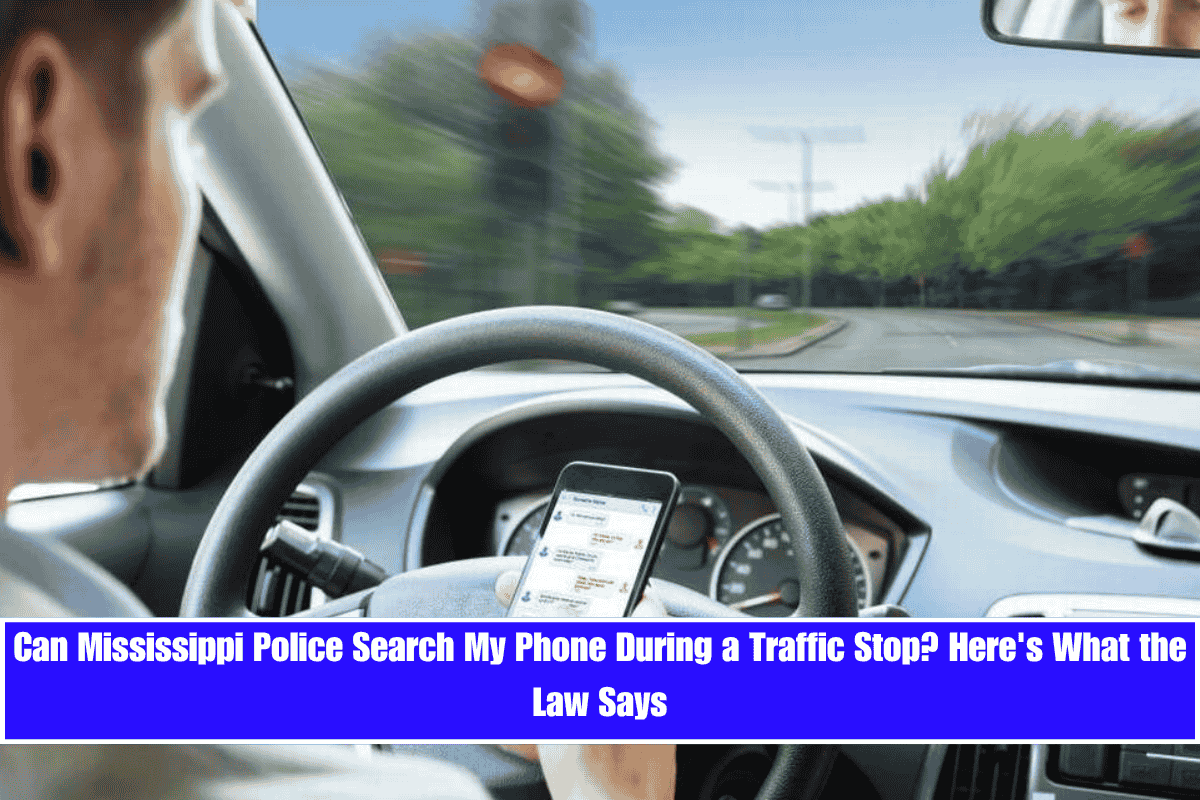Mississippi police generally cannot search your phone during a traffic stop without a warrant. This protection is rooted in the Fourth Amendment to the U.S. Constitution, which prohibits unreasonable searches and seizures and requires law enforcement to obtain a warrant—supported by probable cause—before searching your personal property, including your cell phone.
Key Legal Principles
- Warrant Requirement:
Police must have a search warrant issued by a judge to access the contents of your phone. This rule was reinforced by the U.S. Supreme Court in Riley v. California (2014), which held that the digital data on a cell phone is protected by the Fourth Amendment and cannot be searched without a warrant—even if the phone is seized during an arrest. - Consent Exception:
If you voluntarily give police permission to search your phone, they do not need a warrant. You are not required to provide consent, and you have the right to politely refuse if asked. - Exigent Circumstances:
In rare cases, if police believe there is an immediate threat (such as evidence being destroyed), they may attempt to justify a warrantless search. However, these situations are narrowly defined and subject to court review. - Unlocking Your Phone:
Police cannot force you to unlock your phone using a passcode. They also cannot compel you to use your fingerprint or facial recognition to unlock your phone unless specifically authorized by a warrant.
What About Vehicle Searches?
While police can sometimes search your vehicle without a warrant if they have probable cause to believe it contains evidence of a crime, this does not automatically give them the right to search your phone. The legal threshold for searching digital devices is higher due to the privacy interests involved.
Cloud Data and Third Parties
Even if police cannot access your phone directly, they may seek a warrant to obtain your data from cloud services or tech companies, which sometimes comply with law enforcement requests.
What Should You Do If Asked?
- You have the right to refuse consent to a phone search. Clearly state, “I do not consent to a search of my phone.”
- Do not unlock or hand over your device unless presented with a valid warrant.
- Remain calm and respectful during the interaction.
Mississippi police cannot search your phone during a traffic stop without a warrant or your explicit consent. Your digital privacy is strongly protected by both state and federal law, and you have the right to refuse a search unless a judge has authorized it.
Sources
[1] https://www.govtech.com/public-safety/can-police-search-your-phone-during-a-traffic-stop
[2] https://www.mississippidui.net/blog/2024/10/do-the-police-need-a-warrant-to-search-your-phone/
[3] https://www.mccormick-lawfirm.com/blog/pulled-over-8-rights-you-need-to-know-to-stay-cool-and-collected/
[4] https://www.housleylaw.com/improper-searches
[5] https://www.mississippi-lawyers.com/blog/can-the-police-stop-and-search-me-in-mississippi/












